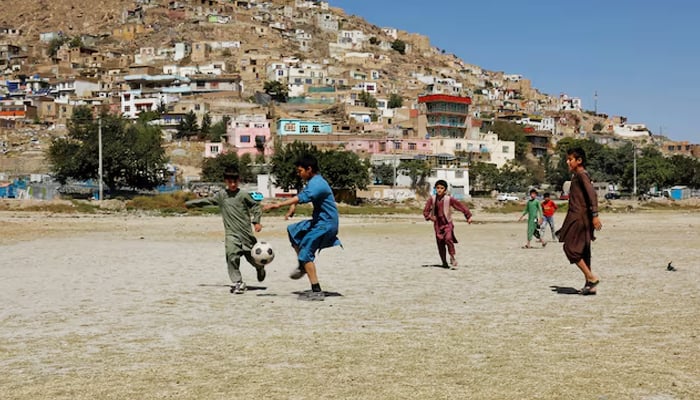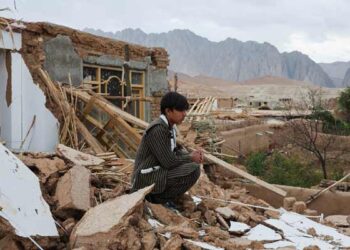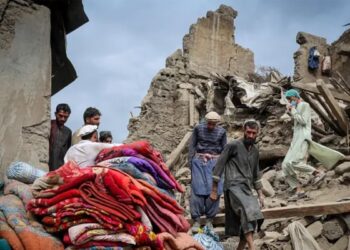Select Language:
Afghanistan’s economy is on the brink as nine out of ten households are forced to skip meals, sell possessions, or borrow money just to get by, according to the United Nations. The situation is worsening with over 4.5 million Afghan returnees since 2023 from neighboring countries like Iran and Pakistan, which has increased the population by about 10%.
Natural disasters such as earthquakes, floods, and droughts have destroyed about 8,000 homes, further pushing the already overwhelmed public services beyond their capacity. A survey involving more than 48,000 households reveals that over half of the returnees have foregone medical care to feed their families, and 45% depend on unprotected springs or open wells for water.
Debt is a heavy burden with nearly 90% of returnee families owing between $373 and $900—five times the average monthly income of around $100 and nearly half of the country’s annual per-capita GDP. In heavily affected areas, the teacher-to-student ratio ranges from 1:70 to 1:100, with 30% of children engaged in work and unemployment among returnees hitting 95%. The average monthly income is about 6,623 Afghanis ($99.76), while rents have tripled.
Without immediate support to bolster livelihoods and public services in high-return areas, the cycle of poverty, marginalization, and migration is expected to intensify. The UN emphasizes that ongoing aid is vital, but since 2021, donor contributions have plummeted, covering only a small portion of the $3.1 billion needed for Afghanistan this year.
The Taliban government called for international humanitarian aid following a destructive earthquake in eastern Afghanistan in September. They also expressed concern over the mass expulsion of Afghan nationals from neighboring countries, condemning the treatment of their citizens.
Women face the most severe hardships. Their participation in Afghanistan’s workforce has dropped to just 6%, one of the lowest rates worldwide. Movement restrictions have made it nearly impossible for women heading households to access jobs, education, or healthcare. UN officials highlight that in some provinces, up to 25% of households rely on women as the primary earners, meaning when women are barred from working, entire families suffer. Women-led households are particularly vulnerable to food insecurity and secondary displacement.
The UN urges Taliban authorities to increase resource allocation and urges donors to lift restrictions on female aid workers. Removing women from frontline aid efforts would cut off essential services for the most vulnerable populations.






